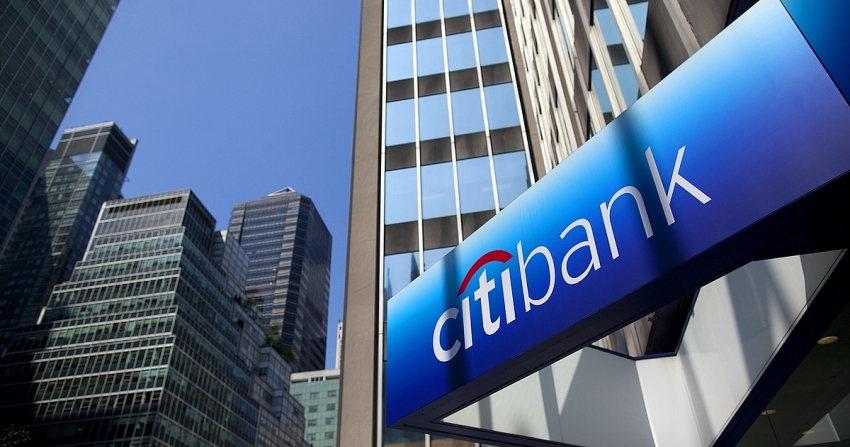Will Kasikornbank purchase Citibank’s retail business arm?
 |
“Kasikornbank is interested in the US lender’s business in Southeast Asia’s second-biggest economy and will study the details as soon as the process is open. Citigroup’s retail business here has a very large and good customer base,” Kattiya Indaravijaya, CEO of the bank told Bloomberg.
Acquisitions and regional expansion are key for Kasikornbank, said Indaravijaya, as it fends off rising competition from new entrants into the industry, especially financial technology firms. Any bid for Citi’s retail business assets would only happen if an acquisition creates synergy and adds value to the bank’s existing businesses.
In January, Pattarapong Kanhasuwan, Kasikornbank executive vice president said that Kasikornbank was granted a license to open a branch in Ho Chi Minh City. The branch is scheduled to open its doors within the third quarter of this year in order to provide services to local customers, including Thai and foreign businesses investing in Vietnam.
“Attention is now focused on Vietnam as a regional investment hub that has attracted the world’s leading companies – including those from Thailand – thanks to its strong economy. As evidenced, Vietnam is the only ASEAN country that is presently enjoying positive growth,” the Kasikornbank representative noted.
Citigroup follows the footsteps of other global lenders such as Standard Chartered and HSBC in shutting down their retail arms in Thailand. HSBC offloaded its Thai retail business in 2012, while Standard Chartered divested its business in 2017, Bloomberg noted.
Interim Citi country officer in Vietnam Lai Minh Thuy told VIR, “Citi has been in Vietnam for several decades and the global announcement about strategic actions in consumer banking across 13 of our markets does not in any way dilute our long-term commitment to Vietnam or the Asia-Pacific region. With this strategic re-positioning, we will be able to further invest our resources in significantly growing our institutional business in Vietnam."
Citi Vietnam assures customers that consumer business operations and offices will continue to operate as normal with the same dedication and passion to serve and support clients.
"We would like to convey to all credit card and bank account holders, as well as our customers in loans, that all our existing products and services will continue normally and there will be no change in our high level of service," Thuy said.
In Vietnam, ANZ quit its retail banking business in 2017, selling it to Shinhan Bank Vietnam. The sale of its retail business was in line with ANZ’s strategy to improve its capital efficiency, allowing the bank to focus on institutional clients.
“Kasikornbank plans to expand its operations in Indonesia and Vietnam, particularly in retail, to tap rising demand from growing populations. Kasikornbank is partnering with PT Bank Maspion Indonesia, in which it owns about a 10 per cent stake. In Vietnam, Kasikornbank has a banking license and is cooperating with e-commerce providers,” Indaravijaya added.
According to Bloomberg, Kasikornbank joins counterparts such as Singapore’s DBS Group Holdings Ltd. and United Overseas Bank Ltd. in expressing an interest in Citigroup’s regional assets. Citibank could receive around $6 billion from offloading its retail business in 13 markets, including Vietnam.
At the same time, Japanese banks MUFG and Sumitomo Mitsui Financial Group, along with UK-based Standard Chartered, are mentioned as other potential bidders. In South Korea, financial institutions OK Financial Group and DGB Financial Group are strong candidates if a bidding war to acquire Citibank’s retail subsidiary takes place.
Specifically, DBS – the Singaporean multinational banking and financial services corporation – is reportedly mulling over buying Citibank’s retail business in India, according to The Hindu Times.
What the stars mean:
★ Poor ★ ★ Promising ★★★ Good ★★★★ Very good ★★★★★ Exceptional
 Tag:
Tag:
Related Contents
Latest News
More News
- VNPAY and NAPAS deepen cooperation on digital payments (February 11, 2026 | 18:21)
- Vietnam financial markets on the rise amid tailwinds (February 11, 2026 | 11:41)
- New tax incentives to benefit startups and SMEs (February 09, 2026 | 17:27)
- VIFC launches aviation finance hub to tap regional market growth (February 06, 2026 | 13:27)
- Vietnam records solid FDI performance in January (February 05, 2026 | 17:11)
- Manufacturing growth remains solid in early 2026 (February 02, 2026 | 15:28)
- EU and Vietnam elevate relations to a comprehensive strategic partnership (January 29, 2026 | 15:22)
- Vietnam to lead trade growth in ASEAN (January 29, 2026 | 15:08)
- Japanese business outlook in Vietnam turns more optimistic (January 28, 2026 | 09:54)
- Foreign leaders extend congratulations to Party General Secretary To Lam (January 25, 2026 | 10:01)




























 Mobile Version
Mobile Version